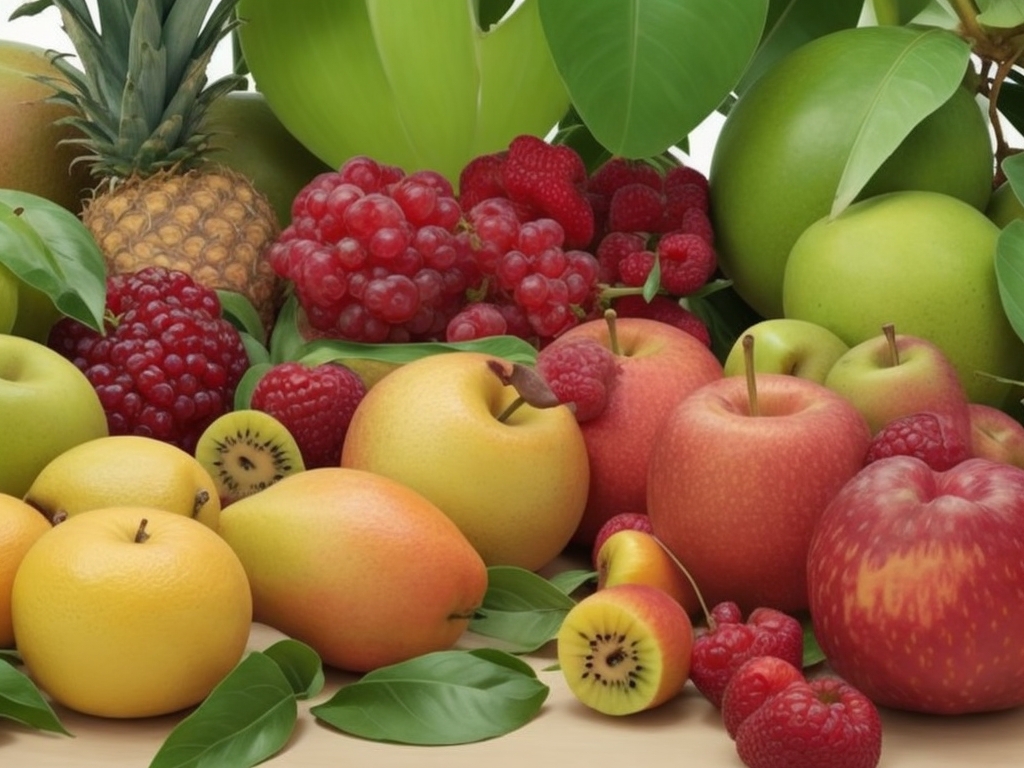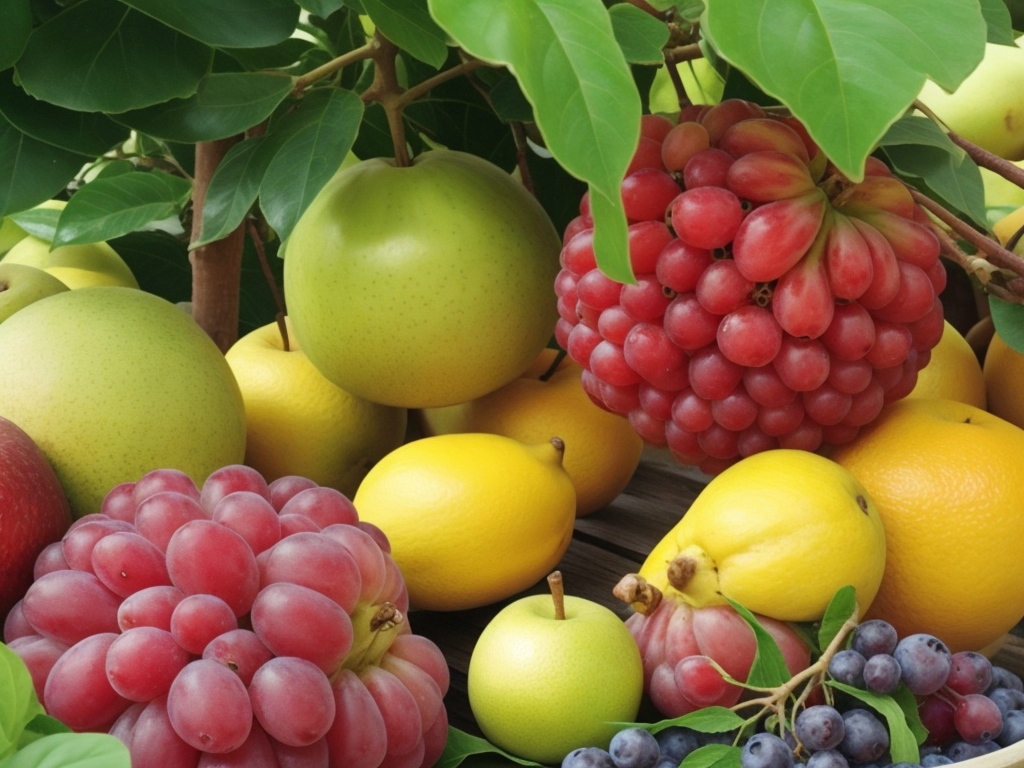In this article, we will talk about the national fruit of a country and why it holds such importance. You will learn about the cultural significance of the national fruit and how it represents the pride of the nation.
The national fruit is a symbol of a country’s history, traditions, and agricultural richness. It is a fruit that holds special importance in the hearts of the people, and it represents the unique flavors and tastes of the nation. Whether it’s the mango of India or the apple of the United States, its more than just a fruit. It is a source of national pride and a testament to the rich biodiversity and agricultural heritage of the country. So, get ready to explore the fascinating world of the national fruits and discover why it is truly the pride of the nation.
The Pride of the Nation: The National Fruit

What is a National Fruit?
Definition of a National Fruit
A national fruit is a specific fruit that embodies the cultural, historical, and agricultural significance of a country. It is chosen as a symbol of national pride and identity, representing the unique characteristics and values of the nation.
Significance of Having a National Fruit
Having a national fruit holds various significance for a country. It not only promotes agricultural and economic growth but also serves as a symbol of cultural heritage and unity among the citizens. The selection of a national fruit allows a country to showcase its natural resources and traditions to the world.
The Role of National Fruits in Countries
Symbolism of National Fruits
National fruits bear a significant symbolism in the countries they represent. They are a source of national pride and act as a symbol of identity, instilling a sense of belonging among the citizens. These fruits are marked with cultural significance, often representing the traditions, history, and values of the nation.
Cultural and Historical Importance
National fruits have a deep-rooted connection with a country’s culture and history. They often find a prominent place in traditional festivals, folklore, and art forms. These fruits have been an integral part of the country’s cuisine and medicinal practices for centuries, showcasing their cultural and historical importance.
Selection Process of a National Fruit
Criteria for Choosing a National Fruit
The selection process for a national fruit involves careful consideration of various criteria. The fruit should be native to the country, have strong historical and cultural associations, and be widely consumed and recognized by the citizens. It should also possess unique qualities or attributes that distinguish it from other fruits.
Involvement of Government and Citizens
The selection of a national fruit is a collaborative effort that involves both the government and the citizens. Government authorities conduct extensive research and consult with agricultural experts and historians to evaluate potential candidates. Public opinion is also taken into account through surveys and public consultations, ensuring that the chosen fruit resonates with the majority of the citizens.

National Fruit of Different Countries
India: Mango – The King of Fruits
In India, the national fruit is the mango, known as the “King of Fruits.” This tropical fruit holds immense cultural and religious significance and is enjoyed by people across the country. The mango is not only a symbol of summer but is also associated with prosperity and fertility in Indian mythology and traditions.
United States: Apple – A Classic Symbol
The United States has chosen the apple as its national fruit. This versatile fruit holds a special place in American culture, representing tradition, abundance, and diversity. Apples are not only widely consumed but are also deeply embedded in American folklore and traditional dishes.
China: Kiwifruit – A Sweet and Tangy Delight
In China, its the kiwifruit, known for its sweet and tangy flavor. This fruit represents vitality, health, and abundance in Chinese culture. The kiwifruit is extensively cultivated in China, and its selection as the national fruit reflects the country’s strong agricultural heritage.
Benefits of Having a National Fruit
Boosting Agricultural Economy
The selection of a national fruit brings numerous benefits to a country’s agricultural economy. It promotes cultivation of the chosen fruit, leading to increased production and export opportunities. This, in turn, generates revenue, provides employment, and supports the growth of the agricultural sector.
Promoting Cultural Identity and Tourism
A national fruit plays a crucial role in promoting a country’s cultural identity and attracting tourists. It becomes a symbol of the nation’s unique heritage and traditions, encouraging visitors to explore and experience the local culture. Fruits festival, exhibitions, and culinary events centered around it can become major tourist attractions, boosting the country’s tourism industry.
The National Fruit as a Source of Pride
Celebrating National Fruit Days
Countries often celebrate special days dedicated to their national fruits. These celebrations can include various activities such as fruit tasting, cooking competitions, and cultural performances. These events encourage citizens to embrace and appreciate their national fruit, fostering a sense of pride and belonging.
Fruit Festivals and Exhibitions
Fruit festivals and exhibitions provide a platform to showcase the diversity and abundance of a country’s national fruit. These events allow farmers, artisans, and entrepreneurs to display their products, encourage innovation, and create business opportunities. Fruit-themed art and cultural displays further enhance it celebration.
Preservation and Conservation of National Fruits
Role of Conservation Programs
Conservation programs play a vital role in preserving and protecting national fruits. These initiatives focus on conserving the genetic diversity of indigenous fruit varieties, promoting sustainable farming practices, and raising awareness about the importance of preserving traditional fruit cultivation methods.
Protection of Indigenous Fruit Varieties
Preserving indigenous fruits varieties is essential for maintaining the cultural and genetic diversity of national fruits. There is an ongoing effort to safeguard these fruits from extinction due to their possession of unique flavors, nutritional values, and resistance to local pests and diseases. Preserving these indigenous varieties ensures the continuity of cultural practices and the availability of diverse fruit options for future generations.
Utilization of National Fruits
Culinary Uses and Recipes
National fruits are widely used in various cuisines, showcasing their versatility and unique flavors. Sapotas find their place in both savory and sweet dishes, preserving traditional recipes and giving rise to new culinary experiences. From desserts to salads, national fruits enrich the gastronomic culture of a country.
Medicinal and Nutritional Benefits
National fruits often possess significant medicinal and nutritional benefits. They are rich sources of vitamins, minerals, antioxidants, and fiber, contributing to overall health and well-being. Traditional medicinal practices utilize national fruits for their healing properties, highlighting their importance beyond culinary purposes.
Challenges Faced by National Fruits
Diseases and Pests
National fruits are not exempt from diseases and pests that can adversely affect their cultivation and production. Crop diseases and destructive pests pose a challenge to farmers, requiring the implementation of effective pest management strategies and disease prevention measures to ensure a sustainable supply of national fruits.
Climate Change and Environmental Impact
Climate change poses a threat to the cultivation of national fruits as it alters weather patterns, affecting the growth cycles, yield, and quality of fruits. The environmental impact of agriculture, such as water scarcity and deforestation, also poses challenges to the sustainability of national fruit production. Adapting to these changes and implementing sustainable practices are essential for the continued success of national fruit cultivation.
Conclusion
The selection of a national fruit holds significant importance for a country, bringing together its culture, history, and agricultural heritage. National fruits symbolize national pride, identity, and unity, fostering a sense of belonging among citizens. They boost agricultural economies, promote cultural tourism, and serve as a source of culinary delight and medicinal benefits. The conservation and utilization of national fruits are essential for preserving cultural traditions, enhancing biodiversity, and adapting to the challenges of a changing world. By embracing and celebrating their national fruits, countries can showcase their unique flavors and heritage to the world, reinforcing their place in global culinary and cultural landscapes.

Hi, I’m King Phils, a Dragon Fruit enthusiast and blogger. Welcome to my website, where I share everything I know and love about this amazing fruit.